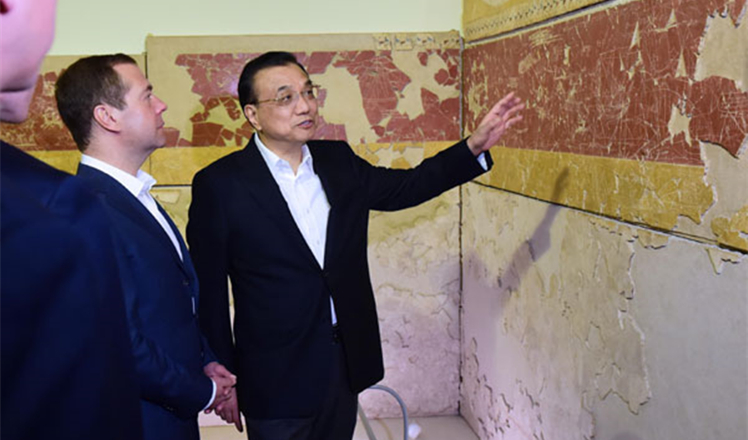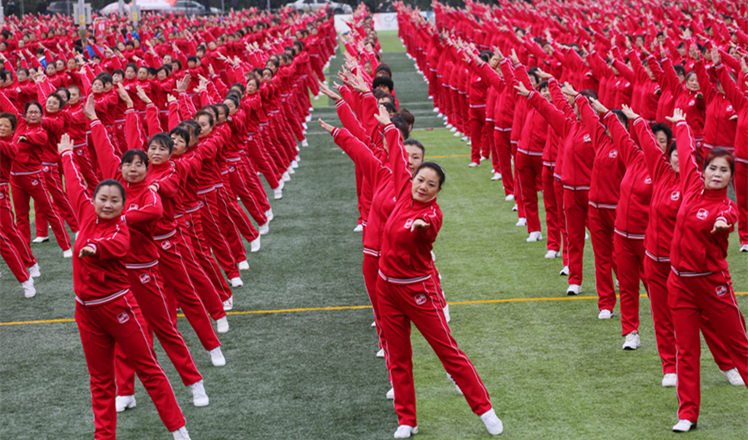ROK expects rapid agreement on military intelligence pact with Japan
Updated: 2016-11-08 15:16
(Xinhua)
|
||||||||
SEOUL -- The Republic of Korea (ROK)'s defense ministry on Tuesday expected a rapid agreement with Japan on a bilateral pact to share military intelligence on the Democratic People's Republic of Korea (DPRK) after a botched attempt four years ago amid public opposition.
The two countries resumed working-level talks a week earlier in Tokyo to consult on directly exchanging each other's military intelligence on the DPRK's nuclear and missile programs. The second dialogue is scheduled to be held in Seoul on Wednesday, according to Seoul's defense ministry.
South Korea's defense ministry spokesman Moon Sang-kyun told a press briefing that the two sides have an experience to have agreed on most of the draft accord in 2012, forecasting a probably fast agreement on details anytime soon.
Former President Lee Myung-bak pushed to seal the hush-hush military deal with Japan in 2012, but it was scrapped at the last minutes amid a public outcry over the closed-door attempt without any social consensus and parliamentary consultations.
Many South Koreans still see such a deal with Japan as unacceptable as the Japanese leadership has yet to apologizes to and compensate the Korean women who were forced into sexual slavery during World War II. The victims are euphemistically called "comfort women."
Adding to the frenzy of anger, Japan has regularly lodged territorial claims over a set of disputed islets, called Dokdo in South Korea and Takeshima in Japan. The islets have been controlled by South Korea since its liberation in 1945 from the Japanese colonization.
Concerns arose here about the ongoing push to sign the deal rapidly without social consensus. Public attention hasn't been paid much to the dialogue resumption as a political scandal exploded over President Park Geun-hye's longtime confidante Choi Soon-sil.
The Japan-South Korea military intelligence pact sparked security concerns in the region as it can assist the US pivot-to-Asia strategy and the Japanese ambition to become a regional military powerhouse.
- Midnight vote in tiny New Hampshire town kicks off US presidential elections
- Swedish prosecutor says Assange interview set for Nov 14
- UK preparing legislation to trigger Brexit, confident of deadline
- Park agrees to accept parliament-nominated prime minister
- Chinese voters hold heated debates
- Summit of Climate Conscience kicks off in Morocco

 Premier Li visits the State Hermitage Museum
Premier Li visits the State Hermitage Museum
 Hogwarts-like assembly hall attracts visitors
Hogwarts-like assembly hall attracts visitors
 50,000 people set new Guinness square dance record
50,000 people set new Guinness square dance record
 Top 10 congested cities in China
Top 10 congested cities in China
 The final take: Trump vs Hillary
The final take: Trump vs Hillary
 Want to experience weightlessness? Try this ride
Want to experience weightlessness? Try this ride
 15,000 paintings, 5,000 candidates, one test
15,000 paintings, 5,000 candidates, one test
 Creating waves with stunts
Creating waves with stunts
Most Viewed
Editor's Picks

|

|

|

|

|

|
Today's Top News
US election rhetoric unlikely to foreshadow future US-China relations
'Zero Hunger Run' held in Rome
Trump outlines anti-terror plan, proposing extreme vetting for immigrants
Phelps puts spotlight on cupping
US launches airstrikes against IS targets in Libya's Sirte
Ministry slams US-Korean THAAD deployment
Two police officers shot at protest in Dallas
Abe's blame game reveals his policies failing to get results
US Weekly

|

|







